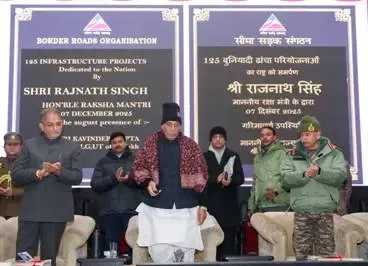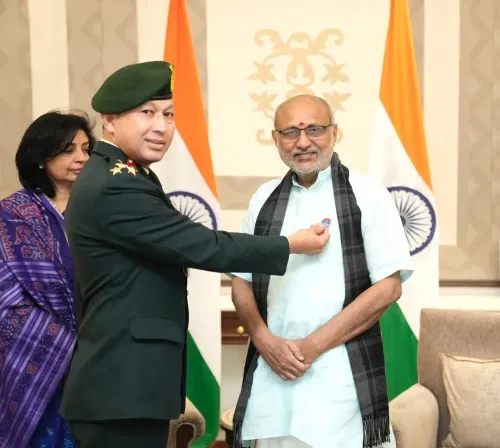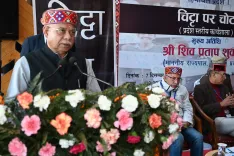Why is Antonio Guterres Pressing India & Pakistan for Military Restraint?

Synopsis
Key Takeaways
- Antonio Guterres calls for military restraint from India and Pakistan.
- Recent military actions follow the Pahalgam terror attack.
- Operation Sindoor targets terrorist infrastructure.
- Global stability is at risk amid rising tensions.
- Dialogue is essential for peace.
New Delhi, May 7 (NationPress) UN Secretary-General Antonio Guterres on Wednesday called upon India and Pakistan to practice “maximum military restraint”, highlighting that the global community cannot afford a military conflict between these two countries.
Guterres voiced his apprehension regarding Indian military activities along the Line of Control and the international border, advocating for immediate de-escalation.
This statement, delivered by Guterres' spokesperson Stéphane Dujarric, came after India's initiation of 'Operation Sindoor', which targeted nine locations in Pakistan and Pakistan-occupied Kashmir.
The operation aimed to dismantle terrorist infrastructure responsible for attacks on India, including the recent Pahalgam incident that resulted in the deaths of 25 Indians and one Nepali.
Previously, the Indian Army claimed to have struck nine positions deep within Pakistan in retaliation for the Pahalgam terror attack.
“A short while ago, the Indian Armed Forces initiated ‘Operation Sindoor’, targeting terrorist facilities in Pakistan and Pakistan-occupied Jammu and Kashmir that have orchestrated and directed attacks against India,” the army stated in a press release.
Additionally, the Indian Army announced on its official X handle, “Justice is Served. Jai Hind.”
“In total, nine (9) sites have been hit. Our actions have been precise, measured, and aimed at avoiding escalation. No Pakistani military installations were targeted, and India has shown significant restraint in choosing targets and executing operations,” the army elaborated.
These actions are a response to the heinous Pahalgam terrorist attack that resulted in the deaths of 25 Indians and one Nepali citizen.
“We are committed to ensuring that those accountable for this attack will face justice. A comprehensive briefing regarding ‘Operation Sindoor’ will be provided later today,” the army added.
Meanwhile, the Pakistani Inter-Services Public Relations (ISPR) Director General, Lt Gen Ahmed Sharif Chaudhry, confirmed the strike on Pakistani territory.
“The missile strikes launched by India targeted Kotli, Bahwalpur, and Muzaffarabad in a cowardly act amidst heightened tensions following a militant attack in occupied Kashmir,” the Pakistan army confirmed.
The strain between these two nuclear powers escalated following the Pahalgam terror attack that claimed the lives of 26 civilians, predominantly tourists.










